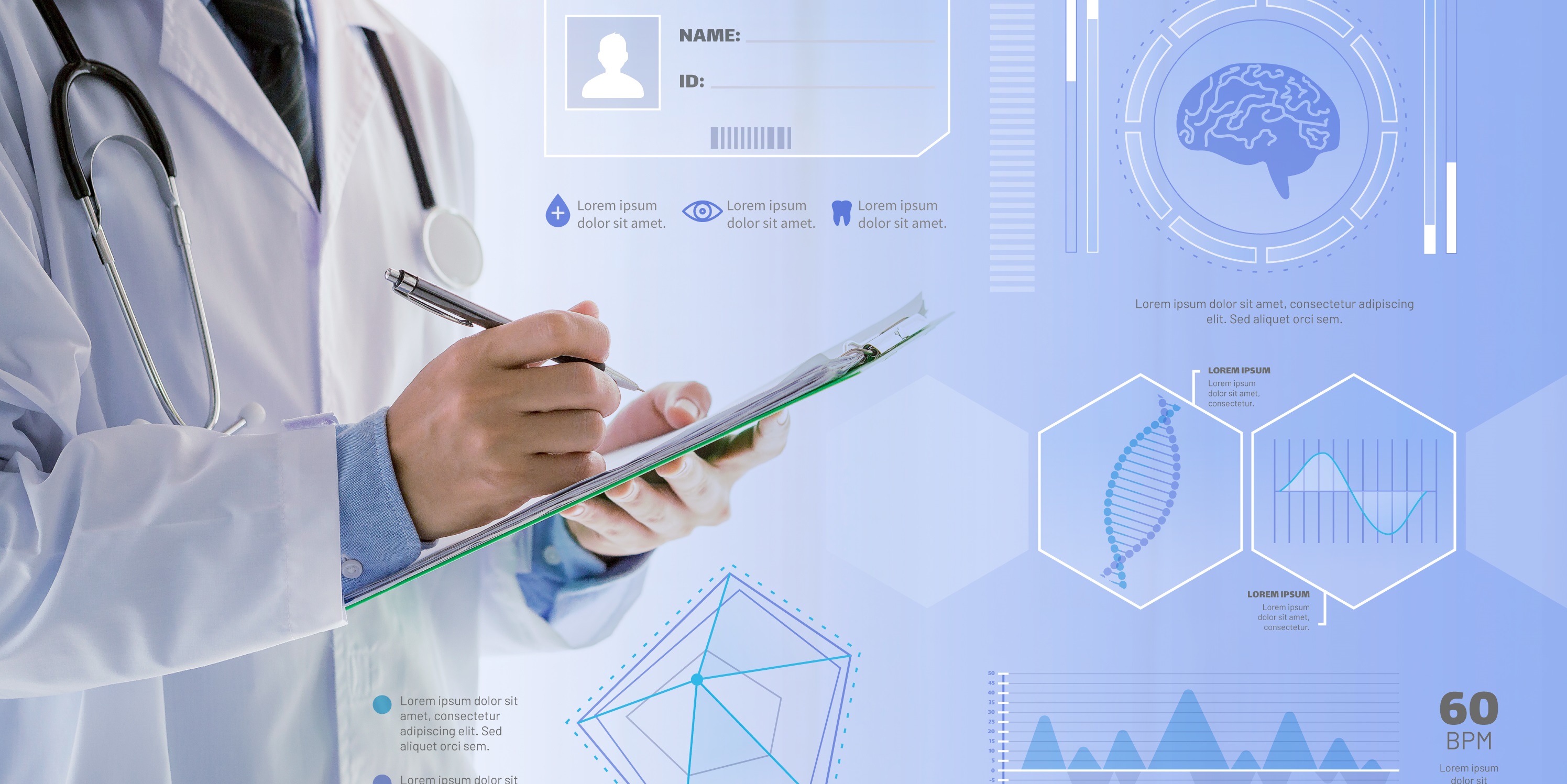DaDuHealth - Data Access and Data Use in Health Settings (2020-2023)
About
The research group led by Prof. Dr. Vöneky at the University of Freiburg is one of five sub-projects of the interdisciplinary research project “Access to and use of health data in the health care and consumer health sectors for research purposes: An ethical, legal and social analysis” (DaDuHealth), which is funded by the German Ministry of Education and Research (BMBF). Work on the project started in July 2020 and ran until June 2023. A Project description on the BMBF website can be found here and further information can be found here.
General Project Description
The use of accumulated health-related data for health research is one of the most promising areas of health innovation. The contexts of data collection and use of data can vary significantly. It includes highly regulated and institutionalised areas such as the use of clinical data generated by the treatment of patients. Furthermore, there is the use of data generated by individuals through the use of mobile devices and wearables, shared on social cloud services and sometimes evaluated by the consumers themselves.
The overarching goal of DaDuHealth is to develop recommendations for the regulation of the access to and the use of health-related data. Therefore, DaDuHealth analyses legal and ethical framework conditions of data use. The project additionally examines institutional guidelines, social trends, consumer behaviour and stakeholder interests in the medical-institutional and consumer health technology sector. Accordingly, the project aims to contribute to the essential ethical, legal and social questions of digitization, Big Data and artificial intelligence in health research and health care. (See also for further information: https://responsible-ai.org/dadu-health/)
Sub-Projects
SP1: Legal Provisions Relevant for Access and Use of Health-Related Data for Research Purposes (PI Silja Vöneky, University of Freiburg) together with Daniel Becker and Onur Seddig (researchers)
SP2: General ethical principles and framework for access to and use of health-related data for research purposes (PI Joachim Boldt, University of Freiburg)
SP3: Ethical tensions and institutional demands of clinical big data collection, integration, access and use (PI Philipp Kellmeyer, University Hospital Freiburg)
SP4: Consumer Health Technology data: User actions and their social contexts (PI Christopher Coenen, KIT Karlsruhe)
SP5: Research Communication and Outreach (PI Oliver Müller, University of Freiburg)
Aims
Under the auspicies of the DaDuHealth-project the objective of the SP1 is to research to what degree the law permits using big data tools, the abundance of health data and the connected lifestyle data for research purposes. The analysis of the relevant rules compares the use and access in the medical institutional context on the one hand and in the consumer health context on the other hand. For the institutional context, the project is going to focus on the newly founded German medical data integration centers, which store and link data from patients for (scientific) research. For consumer health context, the project is going to focus on data collected by online platforms, where individuals upload health-related data such as heart rate, blood pressure as well as exercise and dietary data. The main focus of the legal analysis is the general framework for access and use of data created by the relevant provisions of German constitutional and European Union law by taking into account arguments of the (bio)ethical and legal debates in other states.
Research Assistants
| Stefan Onur Seddig | Phone: +49.761.203-2240 | stefan.onur.seddig@jura.uni-freiburg.de |
| Daniel Becker | Phone: +49.761.203-2240 | daniel.becker@jura.uni-freiburg.de |
Press
ChatGPT und Co.: KI Tools in der Forschung, Video zur interdisziplinären Podiumsdiskussion mit Prof. Dr. Vöneky, 23.10.2023 (Untertitel Englisch/Deutsch)
Statement for the Science Media Center on risks of current AI-Research, 04.04.2023
Brauchen wir eine KI-Pause?, mdr Wissen, 04.04.2023
"Man kann Technologie nicht mit Verboten aufhalten": Diskussion um ChatGPT-Regulierung in Deutschland, Handelsblatt Online, 03.04.2023
ChatGPT & Co.: Arbeitspause für mächtige Sprachmodelle - Streit unter Experten, heise online, 02.04.2023
Brauchen wir eine KI-Pause?, Frankfurter Allgemeine Zeitung, 01.04.2023
S. Voeneky, Interview "Moratorium Künstliche Intelligenz - Lässt sich künstliche Intelligenz in Bahnen lenken?", Deutschlandfunk Kultur, 30.März 2023.
Publications
D. Becker, D. Feuerstack, Der neue Entwurf des EU-Parlaments für eine KI-Veordnung, MMR 2024, 22-26.
D. Becker, D. Feuerstack, N. Hertz, Die Entwürfe des EU-Parlaments und der EU-Kommission für eine KI-Verordnung im Vergleich - Eine Bewertung mit Fokus auf Transparenz, Forschungsfreiheit und Neurotech, ZfDR 4 2023, 421
D. Becker, Der Kommissionsentwurf für eine KI-Verordnung - Gefahr für die Wissenschaftsfreiheit?, ZfDR 2 (2023), 164-184..
S. O. Seddig, Chancen und Risiken der Anonymisierung für die Forschung und Wissenschaft aus Sicht des Datenschutzrechts, OdW (1) 2023, 23.
S. Vöneky, P. Kellmeyer, O. Müller, W. Burgard (eds.), The Cambridge Handbook of Responsible Artificial Intelligence, CUP, 2022
D. Becker, Die Forschungsprivilegierung in der DS-GVO, OdW (2) 2022, 103.
S. Vöneky, A Governance Framework for Brain Data, together with Marcello Ienca, Joseph J. Fins, Ralf J. Jox, Fabrice Jotterand, Roberto Andorno, Tonio Ball, Claude Castelluccia, Ricardo Chavarriaga, Hervé Chneiweiss, Agata Ferretti, Orsolya Friedrich, Samia Hurst, Grischa Merkel, Fruzsina Molnar-Gabor, Jean-Marc Rickli, James Scheibner, Effy Vayena, Rafael Yuste, Philipp Kellmeyer, Neuroethics 2022, 15-20.
S. Vöneky, Key Elements of Responsible Artificial Intelligence - Disruptive Technologies, Dynamic Law, Ordnung der Wissenschaft, 1/2020; zugleich erschienen als FIP 1/2020
T. Schmidt, S.Vöneky, Neue Wege zur adaptiven Regulierung von Hochrisiko-KI-Technologien: Schutz von Rechten und Gemeinwohl, erschienen als FIP 3/2021
Research
S. O. Seddig, Die Künstliche Intelligenz und Gesundheitsdatenschutz - Eine rechtliche Analyse der von KI-Systemen gesteuerten Verarbeitung von Gesundheitsdaten
D. Becker, Datenschutz und Wissenschaftsfreiheit - Verarbeitung personenbezogener Daten zu Forschungszwecken am Beispiel von verbraucherorientierten Gesundheitsanwendungen und Wearables
Contact
Institute of Public Law
Department 2 (Public International Law and Comparative Law) - Prof. Dr. Silja Voeneky
Werthmannstraße 4
79098 Freiburg im Breisgau
Germany
Phone: +49.761.203-2206
Fax: +49.761.203-67683
